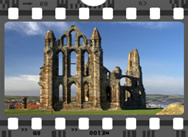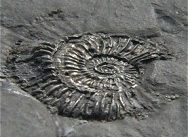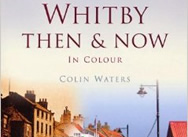Bram Stoker (1847-1912)
Whitby is the scene for a good section of the novel with the arrival of Count Dracula to England's shores aboard the Russian ship, the Demeter which runs aground on the shores of Tate Hill beach in the town's harbour during a fierce storm. All of the crew are missing, presumed dead, with the exception of the captain's body which has been lashed to the ship's helm. When the captain's log has been recovered it recounts tales of the strange and unexplainable events which led to the gradual disappearance of the entire crew and of a malevolent presence on board the ship. As the ship runs aground an animal resembling a large wolf or dog is seen leaping ashore from it's deck. The ill-fated ship's only cargo is described as silver sand and boxes of mould or earth from Transylvania.
Bram Stoker died in London, on 20 April 1912. It has been argued by some biographers that he died of tertiary syphilis, a disease some say he may have shared with some of his novel's characters, but whilst this is debatable it is know that the author had suffered a number of strokes. After his cremation his ashes were placed in an urn, to which his son's where added upon his death in 1961, and held in the Golders Green Crematorium in London, England. His wife Florence survived him by twenty-five years.
Although Whitby's Gothic literary connection was established most strongly by Bram Stoker the town has also inspired many other authors- many of which have shared Stockers' supernatural fascination with the town. More often than not these writers are their works are influenced by the Dracula's connection, such as Robert Forrest's début novel based on the Demeter's to ill fated voyage from Bulgaria to Whitby.
Advertisement...

Whitby Gallery Photo

Whitby Movies

Touch Whitby

To Make You Smile
What is the world's largest mouse?... A hippopotamouse.
Advertisement...

Advertisement...




